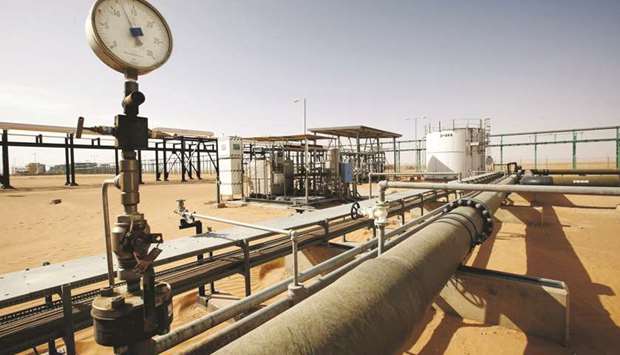Libya’s UN-backed government in Tripoli said Libya’s largest oil field Sharara had reopened after premier Fayez al-Sarraj brokered a deal with protesters who shut it down, but local officials said the field has yet to start production.
Al-Sarraj had set out for the Sharara oil field after his government pledged 1bn dinars ($714mn) in development aid to the impoverished southern part of the country – a region that had complained of neglect even before the broader chaos that engulfed Libya following the 2011 ouster of Muammar Gaddafi.
“The Sharara oil field has been declared reopened following the end of Prime Minister Fayez al-Sarraj’s visit,” the government said in a statement on its official Facebook page.
Libya’s National Oil Corp declared force majeure on operations at the field on Tuesday after production was shut down by demonstrators who included members of the same force charged with guarding the country’s vital oil installations. The field has a production capacity of around 310,000 bpd.
The protest that closed Sharara has also threatened to halt production in the neighbouring Elephant field – further jeopardising the NOC’s push to restore output to pre-2011 levels.
Osama al-Wafi, a member of the Fezzan Anger Movement, the group the shut down the field, told Bloomberg they had decided to disperse after the talks with al-Sarraj. The group had issued a list of demands, including support for security services and better health provisions.
The country sits atop Africa’s largest proven reserves of crude, and oil receipts account for almost all of Libya’s foreign currency revenue. At the same time, oil has become a frequent pawn in the power struggles that have ripped the North African nation apart, with duelling governments in west and east, and rival militias battling for control of assets.
The Tripoli-based NOC has tried to stay above the political fight, even though it has a parallel entity based in the eastern city of Benghazi that lays claim to oversight over the nation’s oil wealth.
The NOC has ruled out negotiating with the protesters or paying them a “ransom.” But it has dispatched millions of litres of gasoline and diesel to the south, along with the Brega Oil Company, in an apparent bid to assuage local grievances.

A general view of Sharara oil field, Libya (file). The protest that closed Sharara has also threatened to halt production in the neighbouring Elephant field, further jeopardising the NOC’s push to restore output to pre-2011 levels.
